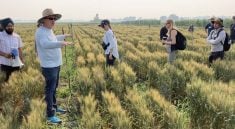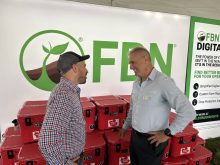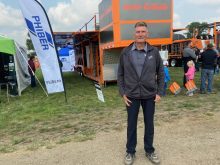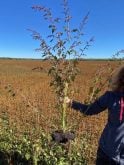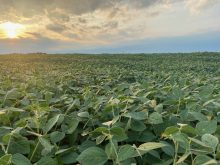A group of agriculture students say farmers should be incentivized to combat herbicide-resistant kochia by growing perennial forages.
The weed is spreading faster than ever in Manitoba, and something must be done “before we have to return to historic practices of hand-picking weeds,” University of Manitoba student Richard Davy told Keystone Agricultural Producers members on Jan. 24.
Davy and classmates from the University of Manitoba’s agriculture diploma program attended KAP’s annual general meeting, where they proposed a resolution to the membership.
Read Also
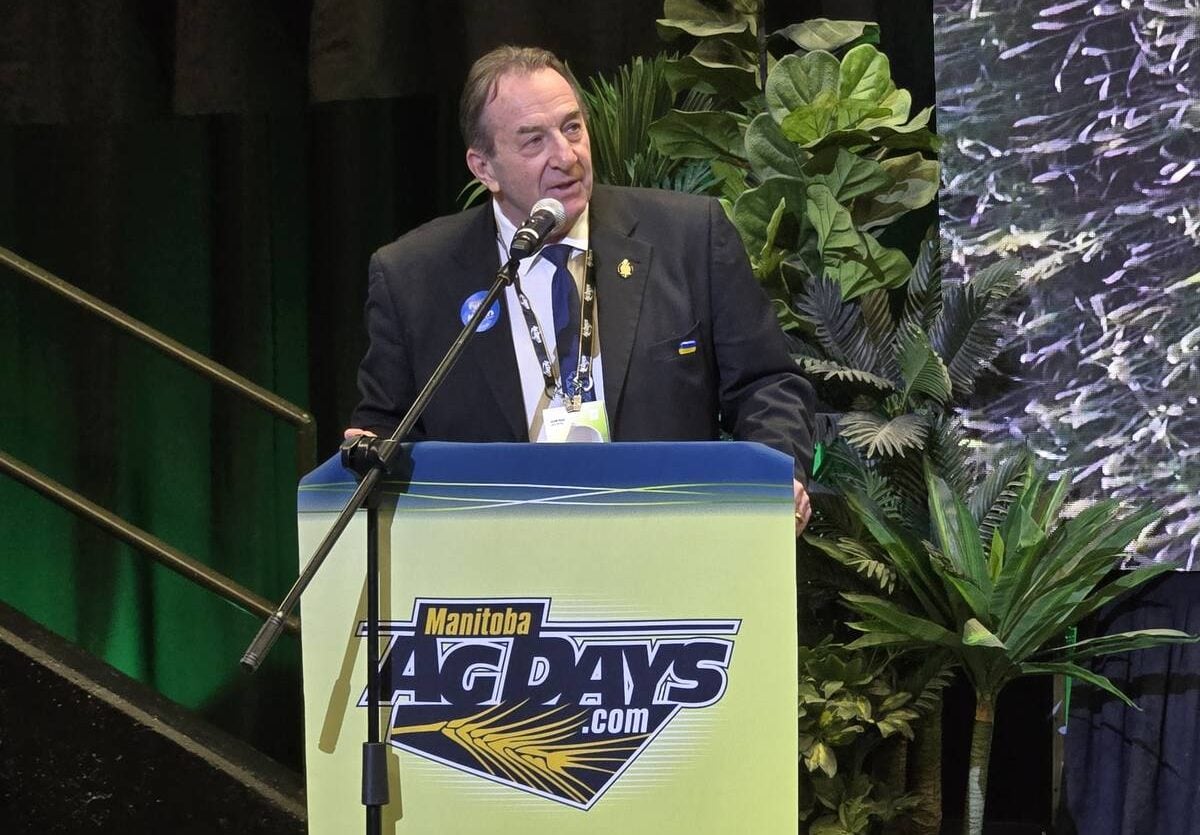
Manitoba crop insurance expands wildlife coverage, offers pilot programs
New crop insurance coverage is available to Manitoba farmers.
Instructor Reg Dyck has groups of students propose and debate resolutions during their “Issues in Agriculture and Food” class. The students choose one resolution to bring to KAP.
Students get real-life involvement in an agricultural organization by presenting a resolution.
The resolution asked KAP to lobby the federal and provincial governments to develop an incentive program in which farmers affected by herbicide resistant kochia could receive up to $50 per acre per year to grow a four-year rotation of alfalfa or other perennial forage on the affected land.
[RELATED] The end of the chemical era draws near for farms
The incentive would help offset lost crop revenue, the resolution said.
Nearly all kochia in Western Canada is considered resistant to Group 2 herbicide, according to a fact-sheet made by the Manitoba Crop Alliance and Canola Council of Canada.
In 2018, nearly 60 per cent of kochia was also Group 9 resistant, and one per cent resisted Group 4 herbicides, the fact sheet says.
Kochia is hard to control because it spreads quickly and thrives in heat, drought and saline soils.
In spring wheat, yield losses from kochia can range from zero to 31 per cent, according to studies in Manitoba, Alberta and South Dakota, a 2022 article in Canadian Agronomist says. In Alberta, canola losses from kochia averaged 13 per cent.
Perennial forage is one of several ways to combat the weed. Student Miguel Audet said they chose to put forage in their resolution because other methods appeared to reduce but not eliminate the problem.
Cutting forage keeps kochia from setting seed, and after four years it could be eliminated.
Since kochia has a short seed life, it could be eradicated in a few years, weed specialist Kim Brown-Livingston told the Co-operator.
“Without tillage to stimulate germination, annual weeds tend to disappear in perennial stands,” she said.
Friendly debate
Since the idea was to give students experience debating issues, KAP director Chuck Fossay spoke in opposition to the resolution.
“Fifty dollars an acre per year doesn’t make economic sense to me,” he said. “I’m better off to actually plow that acre or two of kochia, bury it under six inches of soil, and continue to grow a crop on it.”
Les Felsch agreed with Fossay. He told the group he’d grown alfalfa for seven years on a field with salinity and kochia issues. The alfalfa didn’t grow in saline areas, but the kochia did, so it was not eliminated.
Another speaker suggested farmers might introduce kochia to land they intended to seed to forage in order to get the incentive.
Student Stephen Chubaty said students knew their proposed program was not a whole solution but was a step closer. He added that if Fossay wanted to plow his kochia, he was welcome to do so.
“She’ll come back to haunt you,” he said.
Another farmer spoke in support of the resolution, but said some watershed districts are already funding similar programs.
In a session with media, reporters asked the students why public money should be spent incentivizing farmers to manage their land well, particularly since kochia could cause economic damage. Chubaty calculated that kochia could cause a $200/acre loss in wheat.
The students said the incentive was justified by maximized food production, which would also maximize economic return.
KAP members voted in favour of the resolution.







